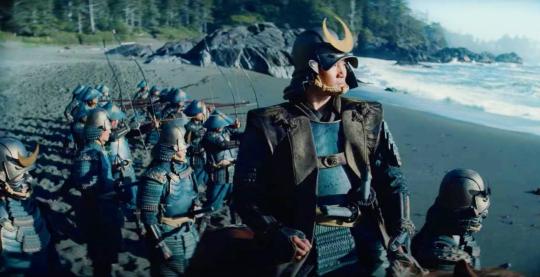#fred rodrigues
Text

I will miss fred completing only 68% of his passes on average and the occasional important goal and all the good vibes.
63 notes
·
View notes
Text
fred posted his farewell message and now for some reason my face is wet
8 notes
·
View notes
Text

Rosilene Xavier , Anna Mariana Casemiro and Monique Salum
Pic: Monique Salum
#antony#antony matheus dos santos#rosilene xavier#casemiro#carlos casemiro#anna mariana casemiro#fred#fred rodrigues#monique salum#manchester united#man united#manutd
3 notes
·
View notes
Text
Oh Fred you chaos merchant I’m gonna miss you 😭😭😭 God Speed Pastor Fred!
0 notes
Text
Desire and Death in Erotic Gay Film
-A Semi-Marcusean Meditation-
While this “discourse” is primarily an issue in online spaces, I continue to be flummoxed by the online visibility of the “no kink at Pride” sentiment. This will not be an examination of that issue or “debate,” as in my mind there’s nothing to debate. Instead, I want to use some media that’s been intriguing me as a way of meditating on what kink and the politics of queer sexual practice can teach us about love and death as erotic beings.
This meditation will require a brief summary of a few ideological trends, namely: Freudo-Marxism and the writings of Herbert Marcuse. I am not a Freudian or a Marxist, but I am an anarchist and someone interested in *some* of the ways people have riffed on Freud’s ideas. Freudo-Marxism or Freudian Marxism is an umbrella term for the various attempts to apply some of Freud’s ideas on psychology to the study of society from a Marxist perspective. Herbert Marcuse in particular is a favorite of mine within this field. His book, Eros and Civilization, takes Freud’s ideas about eros and thanatos, the life and death drives, and puts them in a political context. He argues that Eros, also known as the pleasure principle, is the underlying liberative drive in humanity, defined as sensuality, play, aestheticism and affection/affectation. By contrast, the “reality” principle (thanatos) is sublimation and subjugation for the purposes of work and civilizational development. This quickly leads into social control, oppression and the like, but we are in a capitalist society where such sublimation of our authentic yearning for love is necessary to keep the machine of capitalism running. The solution, therefore, is not merely a class struggle of bourgeoisie vs proletariat, but a struggle of love and liberating desire against the forces of death and power to control.
I call this a semi-Marcusean meditation because I admittedly play somewhat fast and loose with Marcuse’s ideas. My understanding of Eros and Thanatos are informed as much by my own spiritual traditions and political impulses as they are by critical theory. Furthermore, my ideas on Eros in particular are deeply informed by the work of queer womanist Audre Lorde and queer black writer-activist James Baldwin. With that in mind, I want to talk about the work of four gay filmmakers. All of these filmmakers produce erotic films, both in the conventional sense of the word and in the sense that they all make some statement on Eros. Three of these directors make porn films, while one makes films that are not explicitly pornographic, but certainly sexualized in interesting ways. As I reflect on these artists, I will also try to illuminate what their respective works might say about the flow of kink practice between tropes of Eros and Thanatos. I will discuss these artists in a rough order, moving from the film most preoccupied with Thanatos to the one most preoccupied with Eros. While the erotic is ultimately the liberative theme, often insight is revealed by examining its opposite. And so we examine the film most steeped in the symbols of death and alienation, and see what might be revealed.
João Rodrigues
I begin with the newest film and director on this list. João Rodrigues directed the porn film O Fantasma in the year 2000. The film details the journey of a trash collector, Sergio, in his increasingly high-stakes/’transgressive’ sexual exploits. He advances through a continuum. First indulging his curiosity for sex with men, then into semi-public and public sex, fetish acts with discarded underwear and other objects, rubber/gimp suit play, etc. At the conclusion of the film, he has become a faceless gimp roaming the city’s trash dump, a vast landscape depicted as the nadir of civilization.
O Fantasma is a difficult film to pin down on the Eros-Thanatos dialectic, but I place it here first because it is the film that deals most explicitly in the symbols of Thanatos. I will argue down the line that the usage is somewhat subversive in its subtext, but there is no ambiguity about the symbols themselves.
Sergio is a horny, sexually repressed worker under capitalism. His work as a trash collector brings him into contact with the waste of capitalist society. He is an essential part of maintaining the life of people in society, and yet he feels alienation from the social world due to his relative invisibility under the valuation of capitalism (among other things). In this feeling of alienation, he resorts to increasingly transgressive sexuality according to conventional societal mores. As he does so, he becomes more enmeshed in the social symbols of alienation and death, until by the end he is an integrated part of the vast alienated landscape that is the city dump. Is he content? Has he been annihilated, personally or socially? The film does not tell us whether this is, in Sergio’s mind, a desired destiny. It only shows us the slow unraveling of his already frayed relationship to capitalist society.
I see the depiction of Sergio’s journey as a kind of queer prophetic fable, which holds up a mirror to the alienation of capitalist society, particularly in its relationship to Eros. There is a tendency among conservatives to frame the pursuit of desire and erotic fulfillment as something that inevitably leads to extremes and annihilation. This is an ancient fear, going at least back to Greco-Roman society in the pre-Christian and Christian era. There was an anxiety in those times and places that homosexuality was an inevitable temptation for bored straight men. In the conservative view, such experimentation would, if indulged, naturally lead to increasingly anti-social and self-destructive sexual practices. This attitude has persisted into the modern day. Think of the conservative canard about gay marriage, “People will be marrying their dogs next!” That frame of logic only follows if you believe that human sexuality exists as a vector of continuous growth which must be kept “in check” by the fabric of social order and repression of impulses. In reality, of course, non-hetero sex embraces a wide range of symbolic play, and has a variety of spaces wherein fantasy and experimentation with “taboo” elements can be explored safely between consenting adults in ways that transfigure and energize the erotic self. It is the conservative insistence against “excess” that gives rise to repression, which then creates an environment for suppression, self-loathing, abuse, etc.
O Fantasma explores the question of what happens when an alienated person is only able to explore Eros in Thanatotic situations. There is nothing about Sergio’s journey that would be inherently harmful to himself or others. However, rather than having a space or community to explore his desires, he is forced to operate in the shadows, and slowly loses what little status he had as a person in his community. There is a sense that he has achieved a certain apotheosis with this. The ending scenes are lonely, but not judgmental of his trajectory. There is no harm or shame in being a trash gimp, but the situation created for him means that this sexual apotheosis is only possible through completely relinquishing ties to humanity. Apotheosis is possible only through Thanatos.
There are queer theorists who argue that the death drive ought to be the guiding force of queer praxis, that the ephemerality and mortality of queerness is its only gift to personal/political resistance. I reject this idea, and have dealt with its implications elsewhere. Despite being steeped in symbols of decay and refuse, I feel that O Fantasma ultimately suggests that this idea is a flawed one. There is erotic potential in reclaiming the symbols of Thanatos, but to capitulate to a situation we queers have been forced into by oppressive white capitalist patriarchy, to say that we exist only to die and witness to anti-capitalism by our deaths, is the theme the film revolts against.
Kenneth Anger
Anger is perhaps the most complicated artist on this list. While he is a gay filmmaker who makes films that have an erotic edge to them, he does not make pornographic films. He has attempted throughout his career to deal with the themes of Eros and Thanatos, although when interviewed about his films, he is cagey about discussing their themes.
His three films which have the most to say about Eros and Thanatos are probably, in chronological order, Fireworks (1947), Scorpio Rising (1963) and Lucifer Rising (1972). Of these, Fireworks and Scorpio Rising are, to my mind, most effective. Lucifer Rising is an interesting thought experiment, about the dawn of the New Age of Aquarius ruled by a light-bringer Satan figure. It is perhaps Anger’s only attempt to make a film about pure Eros. However, this attempt is muddled by the film’s occult Thelema tropes. While occultism is certainly a valid sphere within which to express erotic themes, Aleister Crowley’s inconsistency in declaring the symbols of Thelema means that Thelema is historically more effective at rejecting institutional religion than at saying anything definitively about what should be.
Fireworks is a dreamlike short film which depicts a young Navy cadet and his homoerotic escapades with a crew of seamen who ultimately beat him to death. Though Fireworks is rather obtuse with regards to themes, it is clearly at least a satire on American militant masculinity and its preoccupation with the forces of death and aggression. The title, the Navy setting, the occasional flashes to abstract imagery of American Christmas celebrations, all point to a skewering of a particular brand of heternormative masculinity. Like O Fantasma, it holds up a mirror to the power of Thanatos in capitalist society, but unlike O Fantasma, there is no apotheosis. There is only death. In 1947, it’s easy to imagine that this sort of bluntness would have been necessary to make a statement in the face of the hegemonic norms. William S. Burroughs’ short story, “Twilight’s Last Gleamings,” (1938) a farce about a sinking American cruise ship interspersed with lines from “The Star-Spangled Banner” in all capital letters, hits similar beats.
Scorpio Rising is less satirical but perhaps more pointed in its imagery. It depicts members of a neo-Nazi biker gang and their sado-masochistic rituals as they haze a new member. While it is not a “documentary” in the contemporary sense of the word (no interviews or metatextual narrative framing), the scenes with the biker gang were real and not simulated. Anger notes that the bikers’ girlfriends were present for many of the scenes at the pre-hazing party. The bikers didn’t want their girlfriends on camera, but were apparently all too happy to let Anger film the stripping, touching, and beating of the initiate, along with several other homoerotic gestures at the party. Of course, the idea of “macho” men having repressed gay urges is old hat. One is reminded of the phrase “You construct elaborate rituals that allow you to touch the skin of other men.” While gay repression is one drive that can be at play in these kinds of rituals, I feel it’s reductive to chalk up such rituals (as many liberals are wont to do) to merely repressed homosexuality. Rather, I would argue that these incidents are an example of the thanatotic consuming the erotic. Various theorists and activists comment on this phenomenon. Christopher Hall, a masculinity studies scholar, notes that men are socialized to have relationships in a capitalist patriarchy that are “sadomasochistic in almost every sense but the sexual.” Toxic masculinity promotes the relentless pursuit of power and control, and this often is coupled with the inflicting of pain on others as a way of asserting and maintaining power. I argue that the sexualized nature of many of these rituals comes from the suppression of the erotic itself, not necessarily of a queer sexual orientation. James Baldwin suggests in his essay, “Here Be Dragons,” that boys in America are not encouraged to grow up and mature into emotionally available men. Thus, men who embrace patriarchal masculinity are not able to develop a healthy connection to their own Eros. What they fear and hate, says Baldwin, is not ultimately the possibility of homosexuality in themselves, but the reality of queer men living a more liberated erotic life without having to struggle to control or possess the objects of their desire. The macho man has struggled so hard to maintain a simulacrum of love immersed in death, and the idea that someone less “man” than he is able to have the fullness of mutual love with comparatively no effort is terrifying and emasculating. Queer womanist Audre Lorde notes that when the erotic is suppressed, it spills over into other spheres. Sexualized comings-together in the absence of Eros take place under the pretext of other meanings: “Playing doctor,” religion, or in this case, frat boy rituals. The pursuit of power and control becomes sexualized, while at the same time lacking any trace of erotic feeling. It is this dynamic that Anger captures very effectively in Scorpio Rising. The initiation takes place in a decommissioned church, and images of Jesus and the church interspersed with Hitler and Nazi images flash on the screen as the young man is whipped and abused. While I find Anger’s critique of Christianity to be shallow, in the context of the “All-American Jesus” of the 50s and 60s in white America, the juxtaposition becomes more effective.
In Anger’s work, the power of hegemonic sexual normativity is revealed as a tool of power, more specifically white power in the case of Scorpio Rising. While kink and BDSM take the symbols of violent power and use them for erotic liberation, Thanatos creates an obsession with violent power so virulent that it takes on a sexual cast without becoming actually erotic. The end stages of Thanatos are apathy and cold hatred, regarding more and more beings as inhuman to the point where it becomes difficult to feel anything at all. It is a kind of alienation and numbness at the lonely heights of power. O Fantasma shows the collective social effect of this end stage on a bystander individual. Scorpio Rising, by contrast, shows the consumptive power of Thanatos’ early stages on those who actively court and cultivate it within themselves. It suggests that we must be wary whenever someone suggests that the presence of “deviant” sexual practice in consenting adult relationships is bad for the community. Oppressive power seeks to sublimate all sexuality and desire into hatred, rage and apathy that is useful to its cause. By continuing to embrace space for subversive erotic exploration (both in the bedroom and in the political sphere), we embrace our deepest humanity and maintain a powerful weapon against death.
Fred Halsted
Halsted’s filmography and politics could take up an entire essay, many essays even. In many ways, while more openly erotic and sexual than Kenneth Anger, Halsted represents perhaps the most complex blend of Eros and Thanatos of all these four filmmakers. This is for two reasons: first, the politics of his art; and second, the politics of his own self-confession regarding his art. This is to say, what his art (to me as a queer interpreter) says and what his art, according to him, means.
Halsted was a porn star, director, sex worker, and sex club owner most active in the 1970s. He considered himself “a pervert first, a homosexual second.” Much of his work is dedicated to showcasing the transgressive power of BDSM, “rough” gay sex, and other queer sexual practices at a time when sexual liberation was ascendant in the popular imagination.
Though one could approach any of Halsted’s work and find rich material to analyze, Sex Tool (1975) is perhaps the best for the theme of this essay. The central plot of the work is a series of vignettes, each showcasing the kinky interests of various socialites at a party (ie, what they get up to and get off to in their free time). The vignettes are held together by the two leads, a young man and his trans female lover who shares the relevant gossip about these socialites and their tastes with him.
The tastes in question include watersports, sadomasochism (including blunt force and piercing), mild blood play, burlesque drag, and public sex. I will first cover what Halsted said about his own work, and then my take on it.
Halsted mentions that the theme of Sex Tool is “sexual politics.” He also said elsewhere that sex and the erotic were inherently emotional, sacramental, spiritual realities for him. In an oft repeated quote he notes “I don’t fuck to get my rocks off, I fuck to get my head off, my emotions off.” All in all, with his emphasis on “perversion,” Halsted is interested in the subversive power of kink to reveal existing power structures of respectability. He was often as frustrated with integrationist elements in the gay rights movement as he was with the pearl clutching of the straights. In this respect, Sex Tool is about exposing Thanatos through transgressive Eros. The film may subtly judge its subjects, but if so, it judges them for their phoniness. For their investment in the veneer of respectability when their desires are just as “taboo” as anyone else’s. Halsted does not seem to have a message beyond this point. There is no “...and then what?” Only the prophetic exposure of sexual civility for the sham that it is, and the unspoken invitation to pursue a greater erotic honesty in all spheres of life.
Yet despite this radical refusal of meaning, which might ordinarily coincide with a kind of death drive, Halsted’s own spiritual investment in his eroticism imbues these scenes with a kind of verve that feels inexplicable purely as Thanatos. They are rough, bawdy, often violent scenes but they are also full of throbbing, pulsing life. The lovers depicted may not always seem to “like” each other. More often, there is a kind of love/hate dynamic (whether between dom and sub, or between closeted john and cross-dressing sex worker), but this is not the annihilating indifference of O Fantasma, nor the fear-turned-hatred of Scorpio Rising and Fireworks. Rather, it is the dynamism of Eros surviving and working itself out on the fringes of conformity, of authentic desire welling up to the surface and crackling like lightning across the scene. As drag queen Trixie Mattel notes about “hate fucking,” “If you wanna fuck someone, you don’t hate them that much.” In Halsted’s work, one sees an alchemical explosion of rage, desire, yearning, anger and love. It is the wrestling of Thanatos (Conformity threatening alienation, dissolution, and dis-identification) and Eros (Desire promising transcendence and the vibrancy of life). In that respect, it is also a powerful refusal of hatred, though portrayed through characters who are still wrestling with the politics of their queer, “perverse” desires.
Wakefield Poole
Finally, we come to the hauntingly luminous Eros of Wakefield Poole. Poole was an artist who made a number of different gay films. The two most famous, Boys in the Sand (1971) and Bijou (1972), are works of vivid Elysian beauty. Bijou is the “darker” of the two, following the protagonist as he infiltrates a surreal, dreamlike sex club and has several sensual sexcapades within its twilight, psychedelic halls. Boys in the Sand is...well, exactly what it sounds like. Filmed on Fire Island, it consists of three segments of gay men having tender, intimate, and playful gay sex. By the beach, at the pool, at the beach house. Notably, it was one of the reasons for Fire Island becoming a gay destination.
It’s almost difficult to analyze Poole’s films because they’re so earnest and uncomplicated. At the same time, it’s clear that Poole has an eye for elegant settings, lighting, and filming his actors’ bodies with a tender, erotic gaze. Poole’s inspiration for Boys in the Sand came after seeing a more gritty film called Highway Hustler (1971). He found the film distasteful, and wanted to make a film “that gay people could look at and say, ‘I don’t mind being gay – it’s beautiful to see those people do what they’re doing.’”
While this may seem like a low bar to aim for, there is something deeply erotic and beautiful about Poole’s approach and execution. One of the segments was filmed with Poole’s lover, Peter Fisk, and Poole instructed his actors much of the time to do what they would naturally do in a sexual scenario, not dictating their “moves” or poses. While it is acting inasmuch as it’s part of a porno, the sex in Boys in the Sand is as authentic as the medium allows, framed by lush natural beauty and the sparkle of light on water and skin. As I mentioned above, Bijou is less bright but no less colorful, and Poole’s methods were similar. When filming screen tests for Bijou, the actors were encouraged to “seduce the camera,” and masturbate to climax. The commitment to arousing genuine pleasure throughout the process of creating these films bathes them in an erotic glow.
Though less kinky than Halsted’s filmography, Poole’s work still provides a radical example of queer Eros in action. So much of the effort to make gays “respectable” has gone into de-sexualizing and de-eroticizing us to the point of emotional sterility. This is a phenomenon which is easily manipulated by the Thanatos of repressive society. Conservative American sexuality considers the mere existence of same-gender fucking to be “kinky,” to be a taboo which brings shame on its practitioners. When gays are tolerated, it is only when we are flayed of any hint of sexualized “flesh,” and our existence as social beings is as dry and lifeless as bleached bones.
Lest this be seen as purely a matter of homosexuality, it’s important to name that this stripping of flesh is quickly turned on the straights as soon as they don’t have gay targets to focus on. BDSM between cishet couples is taboo in “polite” society, and frequently seen as a sign or cause of emotional trauma, a phenomenon that is popular enough to make lots of money for the author of the Fifty Shades of Grey trilogy, for example. Anal sex among cishet couples is seen as taboo, even oral sex was taboo as recently as the 1950s.
Wakefield Poole imbues his work with counter-cultural Eros by posing and answering the question: What if we showed gay love on screen, as something both profoundly, unapologetically beautiful and profoundly, unapologetically sexual? Indeed, Poole shows what I would call the transcendent, paradisiac, or Elysian approach to depicting queer Eros. The erotic at its most potent is profoundly subversive of the forces of death, but it can be so in a variety of different ways. One way is through the transgressive approach, liberating the “negative” symbolism by embracing it in creative ways. Another way is to display the ways that healthy queer sexuality can be even more radiant, luminous, transcendent, and vital than some straight sex. It is to show the echo of the heavenly and the divine in freely given gay desire fulfilled. Straights too can experience this deified Eros (both in sexual and non-sexual spheres), but only if they reject the cultural conditioning of heteropatriarchy. Poole’s work shows the light that shines through human beings in love and sex when we lay down our arms and allow ourselves to fully delight in mutual pleasure in its myriad forms. It shows the ways that earnest Eros can reveal the divine image in us all.
#film studies#Marcuse#Freud#gay cinema#queer theory#queer theology#Kenneth anger#Fred Halsted#Wakefield Poole#Joao rodrigues
7 notes
·
View notes
Text

#i couldn’t find the photos lol#gavi#bruno fernandes#fred#frederico rodrigues#alejandro garnacho#manchester united#fc barcelona#football confessions#p: sophia
3 notes
·
View notes
Text
NHL Wedding Season 2024
We're back again for another summer of NHL weddings! If you'd like to see last year's, check out this post.
If you see something wrong or someone missing, let me know! I'll continue to update this list until September when the weddings fizzle out. I appreciate the replies, reblogs, and asks with corrections and additions ❤️
6/7/24:
Adam Larsson: (private wedding, no idea)
6/19/24:
Jake Evans: Brendan Gallagher, Joel Edmundson, Tyler Toffoli, Nick Suzuki, Joel Armia
6/22/24:
Max Jones: Trevor Zegras, Jacob Bryson
6/26/24:
Adam Fox: (looked to be just family)
Josh Anderson: Nick Suzuki, Max Domi, Nick Foligno, Seth Jones, Cam Atkinson, Scott Hartnell
6/29/24:
Ryan Pulock: Matt Martin, Noah Dobson, Casey Cizikas, Oliver Wahlstrom, Adam Pelech, JG Pageau, Josh Bailey, Mat Barzal, Anthony Beauvillier, Cal Clutterbuck, Bo Horvat, Simon Holmstrom, Pierre Engvall, Mikey Reilly
Jake Oettinger: Mason Marchment, Tyler Seguin, Ty Dellandrea, Wyatt Johnston
7/3/24:
Mason Marchment: Jake Oettinger, Tyler Seguin, Ty Dellandrea, Brandon Montour, Mike Carcone, Owen Tippett, Sam Reinhart
7/6/24:
Nic Hague: Cody Glass, Owen Tippett, Zach Whitecloud, Alec Martinez, Shea Theodore, William Karlsson, Keegan Kolesar, Nic Roy
Brendan Gallagher: Cole Caufield, Nick Suzuki, Carey Price, Jeff Petry, Chris Wideman, Tanner Pearson, Nate Thompson, Philip Danault, Christian Dvorak, Jake Evans, Sam Montembeault
7/7/24:
Adam Fox 2.0: Ryan Reaves, Kevin Rooney, Will Cuylle, Vincent Trocheck, Jacob Trouba, Barclay Goodrow, Alexis Lafreniere, Blake Wheeler, Jimmy Vesey, Jonathan Quick, Ryan Lindgren, Braden Schneider, Sammy Blais, Ryan Donato, John Marino
7/10/24:
Elias Lindstrom: (haven't seen any NHL guests)
7/11/24:
Jared McCann: Jordan Eberle, Yanni Gourde, Vince Dunn, Jamie Oleksiak, Jaden Schwartz, Matty Beniers, Will Borgen, Kailer Yamamoto, Justin Schultz, Andre Burakovsky, Ryan Donato, Darnell Nurse, Brandon Tanev
7/13/24:
Jack Campbell: Tyler Toffoli, Jake Muzzin, Kyle Clifford, Evander Kane
Alex Carrier: Frederick Gaudreau, Mathieu Joseph, Jimmy Oligny
Pierre Engvall: Simon Holmstrom, Owen Wahlstrom
Andrew Mangiapane: Johnny Gaudreau, Rasmus Andersson, Mikael Backlund, Noah Hanifin, Erik Gudbranson, Mack Weegar, Troy Stecher, Jonathan Huberdeau
Kyle Connor: Zach Werenski, Evgeny Svechnikov, Connor Hellebuyck, Tony Calderone
Eetu Luostarinen: Niko Mikkola, Lundell Anton, Aleksander Barkov
Tyler Madden: Alec Turcotte, Akil Thomas
Zack MacEwen: (haven't seen any NHL guests)
7/18/24:
William Carrier: Mathieu Joseph
7/19/24:
Kaapo Kahkonen: (haven't seen any NHL guests)
7/20/24:
Jamie Benn: Tyler Seguin, Joe Pavelski, Jordie Benn, Jason Robertson, Roope Hintz, Joel Kiviranta, Miro Heiskanen, Esa Lundell, Ben Bishop, Luke Glendenning, Ty Dellandrea, John Klingberg
Alex Killorn: Yanni Gourde, Pat Maroon, Brandon Hagel, Nikita Kucherov, Victor Hedman, Zach Bogosian, Anthony Cirelli, Luke Schenn, Ryan McDonagh, Tyler Johnson, Blaine Gabbert, Cam Brate, Andrei Vasilevskiy
Thomas Chabot: Josh Norris, Brady Tkachuk, Tim Stutzle, Mathieu Joseph
Sebastian Aho: Teuvo Teräväinen, Jesperi Kotkaniemi, Seth Jarvis, Antti Raanta, Nino Niederreiter, Jesper Fast, Jani Hakanpaa
7/22/24:
Michael Bunting: Mitch Marner, Auston Matthews, John Tavares, Jake Muzzin, Morgan Reilly, Fred Anderson, Wayne Simmons, Alex Kerfoot, TJ Brodie, Kyle Clifford
7/26/24:
Jake Lucchini: (haven't seen any NHL guests)
7/27/24:
Connor McDavid: Leon Draisaitl, Darnell Nurse, Zach Hyman, Evander Kane, Cody Ceci, Evan Bouchard, Vinny Desharnais, Brett KUlak, Connor Brown, Ryan Mcleod, Derek Ryan, Stuart Skinner, Philip Broberg, Warren Foegele, Devin Shore, Kyle Turris, Luke Gazdic, Zack Kassian, Patrick Maroon, Sam Gagner
Carter Verhaeghe: Matthew Tkachuk, Aaron Ekblad, Evan Rodrigues, Stolarz, Ryan Lomberg, Nick Cousins
8/3/24:
Travis Sanheim: Travis Konecny, Scott Laughton, Shayne Gostisbehere, Joel Farabee, Morgan Frost, Tyson Foerster, James Van Riemsdyk
Connor Ingram: (haven't seen any NHL guests)
Cody Glass: (haven't seen any NHL guests)
8/4/24:
David Pastrnak: Taylor Hall, Tukka Rask, Patrice Bergeron, Brad Marchand, Zdeno Chara, Charlie Coyle, Hampus Lindholm, Jeremy Swayman, Linus Ullmark, Torey Krug, David Krecji
8/9/24:
Alex Tuch: Shea Theodore, Zemgus Girgensons, Tage Thompson
8/10/24:
Tyler Johnson: Yanni Gourde, Ondrej Palat, Mathieu Joseph, Ryan McDonagh, Alex Killorn, Pat Maroon, Reese Johnson, Adam Gaudette
8/17/24:
Cale Makar: Gabe Landeskog, Nathan MacKinnon, Erik Johnson, Bo Byram, Darren Helm, Andrew Cogliano, Josh Manson, Kurtis Macdermid
Zachary Sanford: (haven't seen any NHL guests)
Mike Amadio: Zach Whitecloud, Ben Hutton, Brett Howden, Nic Hague, Nic Roy
Andrew Copp: JT Compher, Tyson Jost
Ryan Johansen: Colton Sissons, Luke Kunin, Roman Josi, Matt Duchene, Dante Fabbro, Cam Atkinson, Ross Colton, Miles Wood
8/23/24:
Roope Hintz: Tyler Seguin, Esa Lundell, Patrik Laine,
#nhl#adam fox#ryan pulock#jack campbell#jared mccann#andrew mangiapane#jake oettinger#wedding#cale makar#connor mcdavid#matthew tkachuk
75 notes
·
View notes
Text
youtube
VA - A Storm Of Drones (Dark Ambient Drone, Illbient)
the 90s. oh boy. top 40 maaterial.
1-1 Robert Normandeau– Tangram (Excerpt) 13:36 1-2 Denis Smalley– Valley Flow (Excerpt) 7:07 1-3 Francis Dhomont– Marine 2:03 1-4 Patrick Ascione– Lune Noire (Excerpt) 4:44 1-5 Annette Vande Gorne Terre (Excerpt) 6:36 1-6 Francis Dhomont– Il Ritorno (Section 1) 2:27 1-7 Stéphane Roy– Crystal Music (Excerpt) 12:19 1-8 Gilles Gobeil– Là Où Vont Les Nuages… (Excerpt) 7:44 1-9 Mario Rodrigue– Cristaux Liquides (Excerpt) 3:36 1-10 Jonty Harrison– Hot Air (Excerpt) 3:57 1-11 Paul Dolden– Veils (Excerpt) 9:25 2-1 Michael Stearns– Reky Into Dark Territory 6:49 2-2 Steve Roach– Merciful Eyes 5:04 2-3 Alan Lamb– Primal Image (Excerpt) 4:43 2-4 Darren Copeland– Maritime Vision 5:39 2-5 Stuart Dempster– Morning Light 9:40 2-6 Fred Szymanski– It Is Hard To Know 4:10 2-7 Ellen Fullman– Change Of Direction (A Condensed Excerpt) 4:18 2-8 Darren Copeland– Reaching For Tomorrow (Extract) 3:05 2-9 Maggi Payne– Moiré 13:04 2-10 Aloof Proof– The Last Leaf (Excerpt) 8:31 2-11 DJ Spooky– In The Valley Of The Shadows… (DJ Spooky Takes A Walk Through New York City) 2:23 2-12 Naut Humon– Twinge Of Lunge 6:08 3-1 Maryanne Amacher– KARYON Sound Character 15:31 3-2 David Kwan– +/- 1V 5:37 3-3 Elliott Sharp– Klystron 4:46 3-4 Iso Ambient Orchestra– Idle Sunder 5:36 3-5 Antimatter– Flyback Transformer 5:16 3-6 Gregory Lenczycki– Temporal Filter Coefficient 5:35 3-7 Mortal Engines– Passage IV 3:04 3-8 Robert Rich– Ephemera 3:11 3-9 Jeff Greinke– Out From Under (Excerpt) 4:04 3-10 Voice of Eye– Sirens At Propolis 6:34 3-11 Vidna Obmana / Asmus Tietchens– VOT 3/2 (A Remix) 8:16 3-12Maryanne Amacher– PLAYTHING Sound Character 6:22
2 notes
·
View notes
Text
Brazil forward Richarlison racially abused as fan throws banana at him during 5-1 victory over Tunisia in France

Brazil’s impressive end to its World Cup preparation was overshadowed by racist abuse as forward Richarlison had a banana thrown at him by a fan during the 5-1 victory over Tunisia in Paris on Tuesday.
The Tottenham Hotspur star scored Brazil’s second goal but as he celebrated a banana was thrown at him among other objects. Teammate Fred was then seen kicking the banana off the pitch.
After the match Richarlison posted on Twitter: “As long as they stay ‘blah blah blah’ and don’t punish, it will continue like this, happening every day and everywhere. No time bro! #racismonao [racism no].”

Brazil’s football federation (CBF) released a statement condemning the actions of the perpetrator and called for stronger action against racism.
“Unfortunately a banana was thrown on the pitch towards Richarlison, scorer of the second Brazilian goal,” read a CBF statement on Twitter.
“The CBF reinforces its position to combat racism and repudiates any manifestation of prejudice.”
CBF President Ednaldo Rodrigues later added: “This time, I saw it with my own eyes. This shocks us. We must always remember that we are all equal, regardless of color, race or religion.
“The fight against racism is not a cause, but a fundamental change to sweep this type of crime from the planet. I insist on saying that the punishments need to be more severe.”

The Real Madrid star was subject to abusive chants, including monkey chants, before and throughout the match.
“They say that happiness bothers,” Vinicius said on his experience. “The happiness of a victorious black Brazilian in Europe bothers much more.
“But my desire to win, my smile and the sparkle in my eyes are much bigger than that. You can’t even imagine it. I was a victim of a xenophobic and racist comment. But none of that started yesterday.
“Weeks ago they began to criminalize my dances. Dances that are not mine.
“They belong to Ronaldinho, Neymar, [Lucas] Paqueta, [Antoine] Griezmann, Joao Felix, Matheus Cunha … they belong to Brazilian funk and samba artists, reggaeton singers, and black Americans.
“Those are dances to celebrate the cultural diversity of the world. Accept it, respect it. I’m not going to stop.”
Other players like compatriot Gabriel Jesus had already raised the issue of Vinicius’ abuse. The Arsenal forward paid tribute to his Brazil teammate by performing Vinicius’ celebration when he scored against Brentford 10 days ago.
FIFA President Gianni Infantino was at Tuesday’s game at the Parc des Princes.
“FIFA strongly rejects any form of racism and violence and has a very clear zero tolerance stance against such behaviour in football,” said football’s world governing body on Wednesday.
“FIFA will investigate the incident in yesterday’s game in Paris.”
The Tunisian football federation has not responded to CNN’s request for comment.
By Alasdair Howorth, CNN
#Richarlison#Racism#Brazil NT#seleção brasileira#International friendly#Tunisia NT#football#fussball#fußball#foot#fodbod#futbol#futebol#soccer#calcio
24 notes
·
View notes
Text
Confira tudo sobre Fred Rodrigues, candidato à Prefeitura de Goiânia
As eleições de 2024 prometem ser um marco na história política de Goiânia, com um cenário altamente acirrado.
Com candidatos fortes e propostas distintas, a corrida eleitoral está a todo vapor, com questões que afetam diretamente os cidadãos goianienses.
Neste ambiente competitivo, vamos explorar os principais candidatos e suas propostas para a capital goiana.
Tudo sobre Fred Rodrigues
Nome:…

View On WordPress
0 notes
Text


bring him back
9 notes
·
View notes
Text
Insulin should be cheap. Here’s why it's not.
youtube
"Toda Ciência deveria ser sempre em qualquer tempo, seja no passado,presente ou futuro,em defesa da vida!" Carlos Chagas
Muitas pessoas alimentam saudades do passado. Sinceramente não tenho a menor saudade do passado, mesmo porque 1 minuto que já passou já é passado.Não alimento o passado pois ele nos remete a vitimização, a melancolia, a sensação de impotência, de inconsistência daquilo que fomos e definitivamente não somos mais.Um elemento comum do passado, presente e futuro deveria ser o aprendizado. Aprendeu? Não? Então de nada adiantou, adianta ou adiantará o tempo.Repetir erros ou equívocos não vai trazê-lo ou trazê-la de volta, nem revolta, nem mágoa ou nem rancor, muito menos o amargor da inveja, do ciúmes, da posse, da tosse alérgica, da prevalência da incompetência sobre a competência em lhe dar com as frustrações, as perdas,o vazio, o vácuo, a solidão.
A descoberta da Insulina.Evolução ou emulação da Ciência?
Por: Fred Borges
Algo que devemos buscar no passado são conquistas da ciência, independente de quem ou como as utilizou, acredito que os verdadeiros cientistas buscam na ciência uma forma de fazer o bem à humanidade, e muito mais que invenções, a proposta da ciência é ser inovadora ou desenvolver a inovação.Uma delas foi a descoberta da insulina.
Controvérsias à parte, o prêmio Nobel de 1923 pela descoberta foi dividido por 4 cientistas, por mérito apenas 02 poderiam ser denotadamente os que deitariam sobre a cama, mas os outros dois ficaram com a fama.
O mundo da ciência é cheio de controvérsias e não se enganem, os cientistas são antes de tudo seres humanos, prontos a "matar ou morrer" por suas "criações", sem escrúpulos, caráter,algumas vezes imoral,antiética ou numa adoção de uma ética que não deveria lhes pertencer,corporativistas, exclusivistas,individualistas, arrogantes,prepotentes, tudo podemos encontrar nos cientistas, inclusive o oposto disto tudo, que diga Carlos Chagas, ou César Lattes, ambos não ganharam o Nobel de Medicina e Física por pura sabotagem dos colegas brasileiros acometidos por um misto de "complexo vira-lata" de Nelson Rodrigues com muita inveja,ambos desmerecedores da ciência, além é claro de outros fatores do mundo meta científico ou nada científico como dos setores industrial ou comercial.
O importante é que a Ciência sempre triunfou, triunfa e triunfará. Mas será que no segmento industrial ou comercial, de patentes, a insulina representa um exemplo de triunfo da humanidade? Dúvido! Um mercado de 24 bilhões de dólares mantido por três indústrias que determinam de maneira oligopolista o preço da insulina que só faz subir, me parece o paradoxo do sucesso da ciência diante do fracasso global dos pacientes diabéticos.
Certo que a insulina salvou,salva e salvará muitas pessoas, principalmente crianças. Não alimento saudades do passado, vivo o presente e no presente a insulina salva, e se há um aprendizado aqui, é que viver é passagem, passagem única, intensa, profunda, e quem foi sinônimo da criação da Insulina foi, é e sempre será Frederick Banting!
0 notes
Text
DIA 25 DE ABRIL DE 2024 : COMOVIDO COM O MUSEU ABEL MANTA EM GOUVEIA : comoveu-me o encontro com o museu dedicado a meu tio. !O imponente edifício do século XVIII foi mandado construir pelos primeiros senhores da Casa do Toural, . Já no século XX, o solar pertenceu aos Condes de Vinhó e Almedina cuja mulher, D. Luísa Guimarães Guedes foi a grande impulsionadora dos estudos de Abel Manta em Lisboa. Em 1981, o Município de Gouveia adquiriu o edifício onde instalou a Biblioteca Municipal e um Museu de temática geral. Em 1983, foi o local escolhido para a exposição retrospectiva da obra de Abel Manta, homenagem ao pintor gouveense, falecido no ano anterior. Esta exposição iniciou o processo que viria a culminar com a constituição de um Museu Municipal dedicado à arte moderna.O Museu Municipal de Arte Moderna abriu a 17 de fevereiro de 1985.:. A coleção do Museu foi constituída a partir da doação efetuada, em 1985, pelo filho de Abel Manta,o arquiteto, pintor e artistas gráfico João Abel Manta.. O núcleo central da coleção é composto por peças de notáveis artistas plásticos do século XX português – dos primeiros modernistas aos anos 80 . Outros nomes representados são Clementina Moura e João Abel Manta, Sara Afonso, Dórdio Gomes, Mª Helena Vieira da Silva, António Duarte, Carlos Botelho, Bernardo Marques, Fred Kradolfer, Manuel Mendes, José Dias Coelho, João Hogan, Joaquim Rodrigo, Luís Dourdil, Maria Keil, Mário Dionísio, Rolando Sá Nogueira, Júlio Pomar, Júlio Resende, António Dacosta, Jorge Vieira, Querubim Lapa, Menez, Lagoa Henriques, Marcelino Vespeira, António Charrua, Lima de Freitas, Carlos Calvet, Sebastião Rodrigues, Rogério Ribeiro, Lurdes Castro, Nikias Skapinakis, Bartolomeu Cid dos Santos, Hilário e Gil Teixeira Lopes, António Costa Pinheiro, Maria Velez, René Bértholo, José de Guimarães, Manuel Baptista, Espiga Pinto, António Sena, Paula Rego, Fernando Conduto, Victor Fortes,António Palolo, Zulmiro de Carvalho.Senti de forma cruel a falta da Zaza . Ela era adorada pelos Mantas e foi pintada por meu tio quando me mobilizaram para a guerra do Ultramar .




1 note
·
View note
Video
youtube
Top 10 Melhores Cursos de Violão Online de 2024
Top 1 Curso Violão Método Tríade COMPLETO - Heitor Castro https://aulasdemusica.net/Metodo-Triade-Violao-Heitor-Castro
Top 2 Curso Violão para Igrejas - Universidade da Bíblia https://aulasdemusica.net/Violao-para-Igreja-30-Dias
Top 3 é o Método Violão Intuitivo - Fred Schettini https://aulasdemusica.net/Violao-Intuitivo-Fred-Schettin
Top 4 Curso Violão Para Todos - Aprenda do Zero aos Dedilhados em Fingerstyle https://aulasdemusica.net/Dedilhados-em-Fingerstyle-no-Violao
Top 5 é o Curso Fórmula Violão - Fábio de Amorim https://aulasdemusica.net/Formula-Violao-Fabio-Amorim
Top 6 é o Curso Violão em Foco - Salomão Rodrigues https://aulasdemusica.net/Violao-em-Foco
Top 7 é o Curso de Violão Gospel - César Romero https://aulasdemusica.net/Curso-Cesar-Romero-Violao-Gospel
Top 8 é o Método de Violão em 8 Semanas - Victor Teixeira https://aulasdemusica.net/Metodo-Violao-8-Semanas
Top 9 Violão Mágico Pacote Completo - Luciano Perin https://aulasdemusica.net/Violao-Magico
Top 10 Curso de Violão Cristão - Edson Stürmer https://aulasdemusica.net/Curso-Violao-Cristao-Edson-Sturmer
1 note
·
View note
Text




#ProyeccionDeVida
🎬 “SHÔGUN” ⚔
🔎 Género: Serie de TV / Aventuras / Drama / Intriga
⌛️ Duración: 60 minutos [10 episodios]
💡 Idea Original: Rachel Kondo y Justin Marks Shogun
✍️ Guión: Shannon Goss, Rachel Kondo, Matt Lambert, Justin Marks, Emily Yoshida, Maegan Houang, Caillin Puente y Nigel Williams.
📜 Historia: Maegan Houang y Caillin Puente.
📕 Novela: James Clavell
🎼 Música: Nick Chuba, Atticus Ross y Leopold Ross
📷 Fotografía: Sam McCurdy, Marc Laliberte Else, Christopher Ross y Aril Wretblad

🗯 Argumento: Año 1600 en Japón. Lord Yoshii Toranaga lucha por mantenerse con vida mientras sus enemigos conspiran contra él. En un pueblo pesquero aparece un misterioso barco europeo abandonado y el destino de este Lord se unirá al de John Blackthorne, el patrón de nacionalidad inglesa de este barco. Juntos tendrán la oportunidad de acabar con la enorme influencia de los enemigos que conspiraron, que son los mismos que los del líder del navío británico: los sacerdotes jesuitas y los mercaderes portugueses. Como traductora de ambos juega un papel esencial Lady Mariko, la última de un linaje caído en desgracia que debe compaginar su reciente amistad con Blackthorne y su lealtad hacia su difunto padre en mitad de este tenso panorama político.
👥 Reparto: Anna Sawai (Lady Mariko), Hiroyuki Sanada (Lord Yoshi Toranaga), Cosmo Jarvis (John Blackthorne), Néstor Gastón Carbonell (Vasco Rodrigues), Takehiro Hira (Ishido Kazunari), Fumi Nikaidō (Ochiba No Kata) y Toshi Toda (Sugiyama).

📢 Dirección: Justin Marks, Rachel Kondo, Fred Toye, Charlotte Brändström, Jonathan van Tulleken, Takeshi Fukunaga, Hiromi Kamata y Emmanuel Osei-Kuffour
© Productoras: DNA Films, FX Productions, Michael De Luca Productions. Distribuidora: FX Network, Hulu & Disney+, Star+
💻 Distribuidora: Disney+
🌎 País: Estados Unidos
📅 Año: 2024

📌 ESTRENO:
📆 Martes 27 de Febrero
🕘 9:00pm.
📽 Ver la Serie:
🖱 https://www.disneyplus.com/es-pe/series/shogun/77sCbAqhMU5H

0 notes
Text
Legislação municipal e estadual dificulta o acesso ao aborto legal
Confira a novidade em https://ntgospel.com/noticias/saude/legislacao-municipal-e-estadual-dificulta-o-acesso-ao-aborto-legal
Legislação municipal e estadual dificulta o acesso ao aborto legal
(adsbygoogle = window.adsbygoogle || []).push();
Leis estaduais e municipais que afetam o direito ao aborto legal no Brasil
Nos últimos meses, a aprovação de leis municipais ou estaduais com iniciativas para levar mulheres a abrir mão do direito ao aborto legal têm chamado a atenção de instituições que monitoram esse atendimento no Sistema Único de Saúde (SUS). Essas leis têm gerado polêmica e impactado diretamente a garantia de direitos sexuais e reprodutivos no país.
Lei de Maceió revogada e aprovada em Goiás
Uma lei em Maceió que obrigava mulheres a verem a imagem do feto antes do aborto legal foi revogada pela Justiça de Alagoas, enquanto em Goiás, o governador Ronaldo Caiado sancionou a lei que criou a “campanha de conscientização contra o aborto para mulheres”.
Lei estadual em Goiás impacta política pública de educação e saúde
A lei em Goiás apresenta diretrizes para políticas públicas de educação e saúde em todo o estado, incluindo a elaboração de palestras sobre o tema para crianças e participantes e a garantia de fornecimento de exame de ultrassom “contendo os batimentos cardíacos do nascituro”.
Impactos nas mulheres que buscam o aborto legal
Segundo Júlia Rocha, coordenadora de uma organização não governamental de direitos humanos, a criação de leis em desacordo com a legislação federal causa impactos significativos para as mulheres que buscam o aborto legal, tornando-as mais vulneráveis e empurrando-as para serviços clandestinos.
Riscos do aborto e dados de pesquisa
O autor da lei de Goiás, ex-deputado Fred Rodrigues, defende a intenção da lei como forma de chamar a atenção para os riscos do aborto, mas Júlia Rocha ressalta que leis desse tipo afetam diretamente o atendimento e o acolhimento no sistema de saúde. Além disso, dados de pesquisa mostram que há um alto número de mulheres vulneráveis que precisam do acolhimento para o aborto legal.
Impacto da saúde estadual
A oscilação na oferta do aborto legal por diferentes localidades prejudica principalmente as crianças que buscam o serviço, muitas vezes em um estado de gestação avançado. A disponibilidade desse serviço é crucial para garantir o atendimento das mulheres que necessitam do aborto legal.
Conclusão
Esse cenário gera preocupaçao para as organizaçãoes de saúde e direitos humanos, e é fundamental que o debate sobre o aborto legal seja pautado com base nas garantias de direitos e no cuidado com a saúde pública. É preciso que haja um alinhamento entre as leis estaduais e municipais com a legislação federal para assegurar o acesso ao aborto legal dentro do Sistema Único de Saúde.
(adsbygoogle = window.adsbygoogle || []).push();
*Com informações da Agência Brasil
0 notes